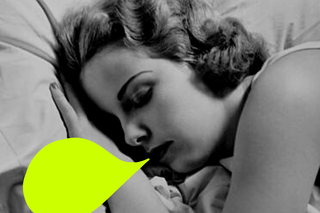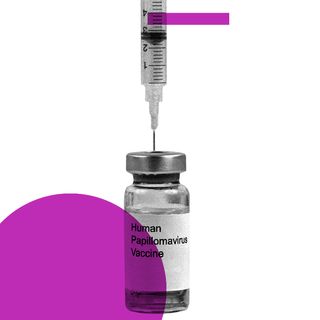
Why Do We Talk in Our Sleep?
It has less to do with our innermost desires and more to do with mental health and overstimulation.

In fiction, anything said by the characters while sleeping is, usually, depicted as intelligible and meaningful — often offering deep insights into their psyche. Take how in the Twilight saga, Bella often confesses her attraction toward Edward in her sleep. But, in real life, sleep talk is mostly indecipherable or nonsensical (just like vampires and werewolves).
Since sleep talking happens outside of conscious awareness, when aspects of wakefulness intrude upon our state of being asleep, it prevents us from actually making sense. This is because “the mind is meandering and ruminating. It’s really the ramblings of a rather befuddled mind,” Professor Jim Horne, former director of Loughborough University’s Sleep Research Centre, told The Guardian.But, what makes it happen?
Also called somniloquy, researchers aren’t sure if the phenomenon is linked to dreams. But, sleep talking tends to occur during light sleep, a state characterized by the heart rate slowing and the body temperature dropping, as we prepare for deeper sleep. However, it can occur during the rapid eye movement (REM) cycle of sleep, too, which is a deeper stage of sleep — demonstrating that the brain is not completely ‘switched off’ during sleep. Sleep talking during the REM-stage takes place when our brains briefly fail to paralyze the body’s muscles, and the mouth and vocal cords, which are usually inactive in this stage, briefly get switched on. Sleep talking may also occur when a sleeper briefly becomes half-awake while transitioning from one stage of non-REM sleep to another.
It is difficult to estimate how common sleep talking is, since people sleep through this experience and have no recollection later. But according to a 2018 study from Norway, 66.8% of people report having sleep talked in their lifetime. And children seem to experience it more often than adults do — in some children, the brain’s ability to routinely regulate sleep and wake cycles develops faster, while for some others, it is slower, potentially contributing to their greater tendency toward sleep disorders like somniloquy. But, reportedly, children tend to outgrow it as their nervous systems develop.
Related on The Swaddle:
Why Do We Get Those Mild, Pesky Eye Twitches?
Research suggests that sleep talking may be genetic, and run in families. However, lifestyle may also be responsible. It can also be a result of sleep deprivation, daytime drowsiness, fever, or stress. “In my experience, [it] can be linked to the nervous system being overstimulated, which can be related to excessive use of technology before bed or too much caffeine,” Dr. Nerina Ramlakhan, sleep therapist, explained. Consuming alcohol before bedtime is also believed to be a contributing factor to somniloquy. In fact, experts advise people to check their consumption of alcohol, caffeinated drinks, as well as heavy meals before sleeping, to prevent talking in their sleep.
Somniloquy could also be a result of not expressing ourselves fully while awake and simply spilling pent-up feelings. “…these sorts of behaviors can happen with people who are quite hard on themselves, they’re perfectionists, but they often hold back on saying what they really want to say. When they go to bed at night, it spills out into the sleep,” Dr. Ramlakhan added. Given that research says sleep talking involves swear words quite often, that explanation — that we blabber things we’ve been holding back while awake — makes sense.
Finally, experts say sleep talking also occurs in people suffering from mental health conditions like depression. And, quite often, people undergoing post-traumatic stress disorder (PTSD) experience somniloquy. In fact, when an individual suddenly starts experiencing multiple instances of sleep talking, after the age of 25, experts often look for underlying mental health issues. And, sometimes, sleep talking may be a feature of other sleep disorders like nocturnal seizures, sleepwalking, or obstructive sleep apnea.
While sleep talking may be harmless for most people, sometimes, it can indicate a more serious sleep disorder or a health condition. “I think it’s best not to place too much concern on sleep talking and not take the words said by someone seriously. [But] someone who persistently [sleep talks] is probably quite anxious and it might be a good idea to find out what is worrying them,” Professor Horne advises.
Devrupa Rakshit is an Associate Editor at The Swaddle. She is a lawyer by education, a poet by accident, a painter by shaukh, and autistic by birth. You can find her on Instagram @devruparakshit.
Related


1 in 3 Women Suffer Mental Stress Due to Harassment on Facebook, Instagram: Global Survey
